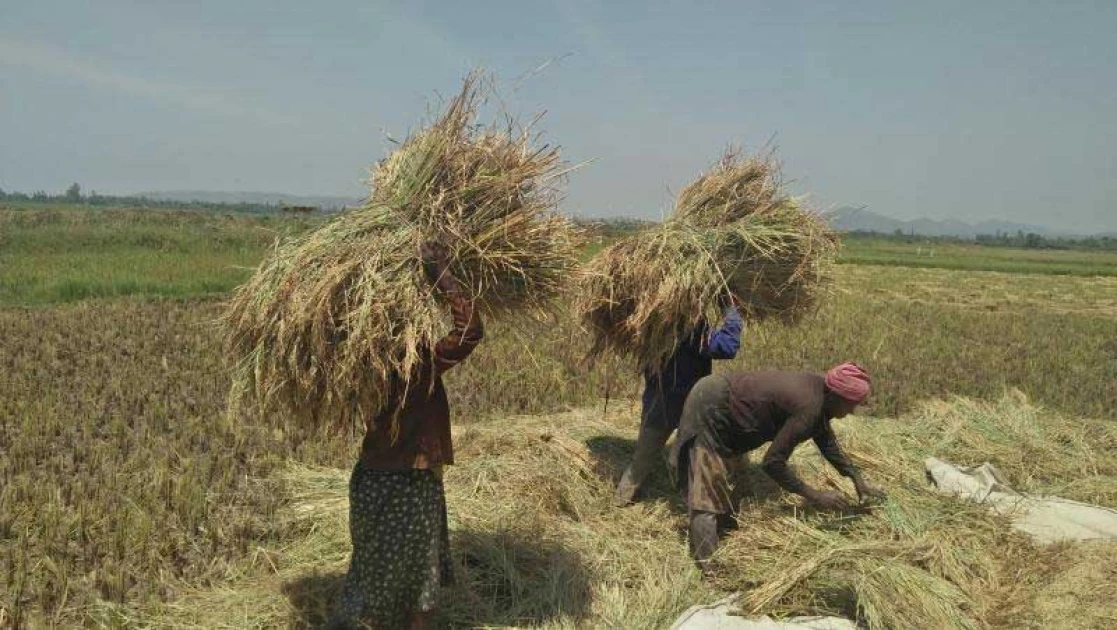Gov't assures farmers of protection amid uproar over rice importation plan

Rice farmers tend to crop at the Mwea Irrigation scheme in Kirinyaga County. Photo| File

Audio By Carbonatix
The Agriculture and Food Authority (AFA) has promised to
safeguard farmers' interests following the government's plan to import 500,000
metric tonnes of rice by the end of the year.
This comes after Treasury Cabinet Secretary John Mbadi,
through a gazette notice, directed the importation of duty-free Grade 1 milled white
rice on or before December 31, 2025.
Mbadi said the decree was after recommendations from his
Agriculture counterpart Mutahi Kagwe.
Farmers heavily opposed the move, citing that it would have a
negative impact on the local produce that is stored at Mwea Rice Growers
Multi-Purpose Cooperative Society (MRGM) stores.
In a statement, AFA Director General Dr. Bruno Linyiru
explained that the State had implemented the necessary measures to safeguard
farmers' interests.
"Importation will not disrupt the local market or
disadvantage Kenyan farmers. Before this decision was reached, the government,
through the Kenya National Trading Corporation (KNTC), actively procured and
continues to secure rice directly from paddy as it is milled," the
statement read in part.
"KNTC remains committed to supporting local rice farmers
by providing a guaranteed market throughout the milling process."
AFA also assured the public that the State would only permit
Grade 1 milled white rice that met strict Kenyan and international
standards.
Linyiru added that the duty-free window for the milled rice is
time-bound and will be under close regulatory oversight.
"It is important to note that this is not the first time
Kenya has resorted to rice importation to supplement local production. This will
continue into the foreseeable future only until we attain self-sufficiency,"
he stated.
AFA noted that that the Agriculture ministry has partnered
with the government of Japan to expand the Mwea, Ahero and Bura Irrigation
Schemes to boost local rice production capacity.
He pointed out that the measures would boost food security and
stabilise prices to ensure rice remains accessible and affordable.


Leave a Comment